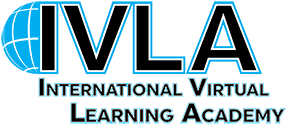What is Common Core?
Way back in 2010, more than forty (40) states adopted the same educational standards for English and math. These standards were called the Common Core State Standards (CCSS) and were created by education experts, teachers, and parents to better prepare students for both college and the workplace. These educational standards were created to specify what students should know and what students should be able to do in each subject and each grade. The thinking was that by having uniform learning standards, all students would receive a good education regardless of school and geographic location.
How Has Common Core Fared?
Unfortunately, recent test scores indicate that the Common Core experiment has been nothing short of a failure. According to test results released in October 2019 by The National Assessment of Educational Progress (NAEP) (which is a federally mandated reading and mathematics test given every other year to students in grades four and eight, test scores for American students declined yet again.
According to NAEP, reading scores declined the most, with both fourth and eighth graders showing decreased learning as compared to the 2017 test results, which was the last year of testing. According to U.S. News and World Report, “students in the U.S. made significant progress in math and reading achievement on NAEP from 1990 until 2015, when the first major dip in achievement scores occurred.” This is significant given that 2015 is the year states were required by the Obama administration to have fully phased in Common Core.
 The college testing organization ACT, which released their report on the same day that NAEP released their latest test scores, stated that the 2019 high school class will graduate with the lowest college preparedness in English and math as measured over the last fifteen (15) years. This is very alarming news given that one of the essential goals of Common Core was to better prepare our high school students for college. According to ACT, “readiness levels in English, reading, math, and science have all decreased since 2015, with English and math seeing the largest decline.”
The college testing organization ACT, which released their report on the same day that NAEP released their latest test scores, stated that the 2019 high school class will graduate with the lowest college preparedness in English and math as measured over the last fifteen (15) years. This is very alarming news given that one of the essential goals of Common Core was to better prepare our high school students for college. According to ACT, “readiness levels in English, reading, math, and science have all decreased since 2015, with English and math seeing the largest decline.”
In an October 2019 article in The Western Journal, Betsy DeVos, America’s Education Secretary, stated “Every American family needs to open The Nation’s Report Card this year and think about what it means for their child and for our country’s future.” DeVos added “The results are, frankly, devastating. This country is in a student achievement crisis, and over the past decade it has continued to worsen, especially for our most vulnerable students” Ms. DeVos made these comments as part of the Department of Education’s 2019 National Assessment of Educational Progress report.
The Western Journal article went on to state “This failure in U.S. schools comes at a time when Chinese students appear to be blowing American children out of the water. Results from the Program for International Student Assessment (PISA) (http://factsmaps.com/pisa-worldwide-ranking-average-score-of-math-science-reading/), which tests students internationally on their proficiency in math, science and reading, show that China ranks a full 21 spots ahead of the United States.”
As the poor results for the Common Core program pile up, many states have reassessed their commitment to the Common Core program. According to a New York Times article more than twenty states had either repealed, revised, or rolled back parts of the Common Core program. In 2017, the State of Kentucky, which was the first state to adopt Common Core in 2010, repealed the use of Common Core in its schools.
What’s most disturbing is that these test results are consistent with other testing and measurement results. According to the Global Report Card, America’s best school districts now generate average student achievement as compared to the rest of the world. Making all of this even worse is that billions of taxpayer money has been spent to achieve these discouraging (devastating?) results.
Is Personalized Learning the Solution?
At a January 2018 event organized by the American Enterprise Institute (AEI), a conservative public policy think tank, and shared in an article on EdSurge, Betsy DeVos spoke about improving education via “personalized learning.” According to DeVos, “We need to allow for individualization and customization, and I think a lot of the tasks and trends around personalized and customized learning are really promising.” When asked what made her a proponent of personalized learning, DeVos stated “What I have observed and also read from others who are more deeply immersed in this, is that students that are in that setting are able to really pursue their learning and take charge and control of their own learning and to proceed at a rate that works for them.”
The Aurora Institute defines personalized learning as follows:
“Tailoring learning for each student’s strengths, needs and interests–including enabling student voice and choice in what, how, when and where they learn–to provide flexibility and supports to ensure mastery of the highest standards possible.”
The Aurora Institute goes on to identify the following as key aspects of personalized learning:
- Encouraging students to have an active role in their educational experience/program;
- Promoting learning within each student’s personal education level/comfort zone;
- Promoting learning at a pace that’s suitable to each individual student;
- Engaging the student on a more personal level;
- Thoroughly understanding what’s best for each individual student and that student’s goals.
With regard to the future of personalized learning, DeVos stated that unlike the failed Common Core program, she does not see The Department of Education offering financial incentives to encourage the adoption of personalized learning programs. Apparently, after spending an estimated $7 billion via the School Improvement Grants program and seeing minimal results, Ms. DeVos and The Education Department have no appetite for further spending.
As an online K-12 school that prides itself on providing the highest quality personalized educational programs, we would love to hear what you have to say about Common Core and/or personalized learning. Please forward your feedback to: [email protected], or comment below.


